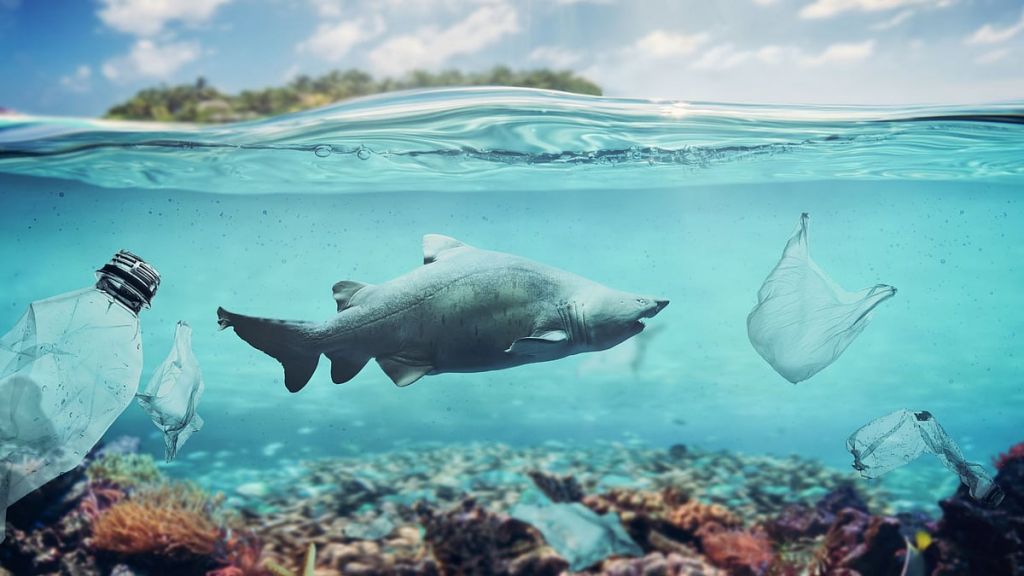
US President Donald Trump has once again brought plastic straws into the spotlight. In a move that dismisses environmental concerns, he has signed an executive order to bring back plastic straws in federal agencies. This decision reverses Biden’s policy on single-use plastics and eliminates paper straws from government buildings.
While signing the order, Trump told reporters, "We're going back to plastic straws." He argued that paper straws are ineffective, saying, "These things don't work. I've had them many times, and on occasion, they break, they explode. If something's hot, they don't last very long, like a matter of minutes, sometimes a matter of seconds. It's a ridiculous situation." Federal agencies are now instructed to stop purchasing paper straws immediately.
President Trump signs executive order to ban paper straws.
— The American Conservative (@amconmag) February 10, 2025
"We're going back to plastic straws, [paper] straws don't work. I've had them many times. They break, they explode, if something's hot they don't last very long, it's a ridiculous situation."pic.twitter.com/wRUo2tNHqT
What impact can plastic have on sharks and the marine life?
While Trump has claimed that plastic straws "won't affect a shark", scientific evidence tells a different story. Each year, 400 million tonnes of plastic waste are produced worldwide, but only 9% gets recycled, according to Earth.org. The rest ends up in landfills, oceans, and other natural environments. Single-use plastics, such as straws, contribute significantly to environmental degradation.
During the 2020 campaign, Trump sold plastic straws. Today he wants to keep them legal, erasing a Biden mandate for All Americans to stop polluting and use paper straws instead. Trump doesn't care about the environment, it's for dumping. pic.twitter.com/nu0yCBoJuJ
— Don the border king (@johnny45436859) February 8, 2025
Contrary to Trump’s statement, plastic waste has a devastating impact on marine ecosystems. The World Wildlife Fund reports that 100,000 marine animals die annually due to consumption of plastic or entanglement. Single-use plastics break down into microplastics, which contaminate water bodies and enter the food chain, affecting various marine species.
Microplastics in food and human health
Studies have found microplastics in seafood, bottled water, human organs, and even the air we breathe. Research sampling 182 seafood species found that 180 contained microplastics, including common fish such as salmon, rockfish, and herring. These particles, less than 5mm in size, stem from the breakdown of larger plastics. The National Institutes Of Health warn that ingesting microplastics may lead to endocrine disruption and potential cancer risks.
Our oceans are littered with plastic. Marine life is suffering. A recent study identified 343 pieces of plastic in a single marine turtle.
— Frontiers (@FrontiersIn) October 6, 2021
Read the study here: https://t.co/9rA8SlXqsJ pic.twitter.com/qpFLBr4WbK
“There’s plenty of fish in the sea.”
— Jordan (@Jordan_Coombe) February 27, 2019
But guess what?
By 2050, it is estimated that there will be more plastic in the ocean than fish.
70% of the air we breathe depends on the ocean’s marine plants. The sea is also our climate regulator.
We need an immediate solution. pic.twitter.com/uSi2IH4f16
The oceans, the lungs of the Earth, produce over 50% of our oxygen and absorb a third of CO₂ emissions. Yet, they’re suffocated by plastic pollution, threatening marine life and ecosystems.
— Plastic Free (@plasticfreeit) January 17, 2025
Join us to make the planet a better place#plasticfree #plasticpollution pic.twitter.com/QSliTDTW3T
Trump’s stance has fueled controversy. While his administration argues that paper straws are ineffective and inconvenient, environmentalists stress the need to curb plastic pollution. The US plastic industry alone produces 232 million tons of carbon dioxide equivalent emissions annually, matching the output of 116 coal-fired power plants. This highlights the broader climate impact of plastic production.
Trump’s order to reintroduce plastic straws has ignited a national conversation on sustainability. As the debate between convenience and environmental responsibility continues, experts warn that failing to address plastic pollution could have long-term consequences for marine life and human health.